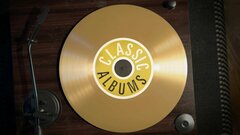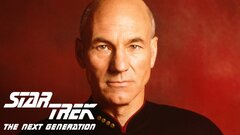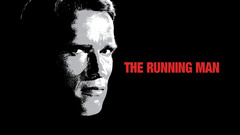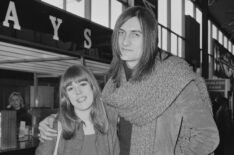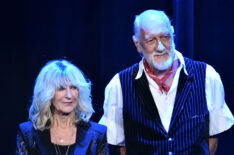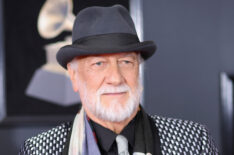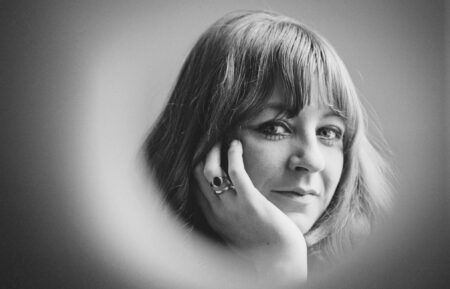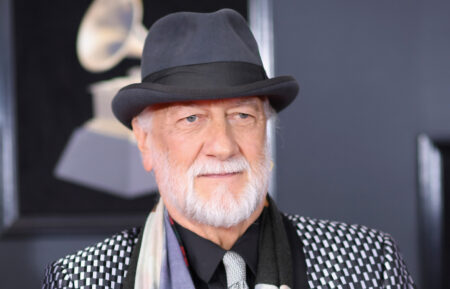The charismatic 6'7" drummer and leader of Fleetwood Mac, Mick Fleetwood laid down the rhythm for the iconic American-British rock band from its early days as a blues act in the late 1960s through its chart-topping success with Rumours in the mid-1970s and a period of decline in the late 1980s and rebirth in the 1990s. A journeyman drummer throughout the early 1960s, he was fired from the legendary Bluesbreakers after only a month, during which he forged a close connection with its guitarist, Peter Green, and bassist John McVie. Green would bring the pair into his solo project, which he named Fleetwood Mac in tribute to them.
After Green's departure due to psychological issues, Fleetwood became the group's leader, overseeing its evolution from blues-rock to the mellower, singer-songwriter-influenced stage that produced Rumours (1977), the group's best-selling effort. Tensions between band members drove the group to split and regroup throughout the 1970s and 1980s before reuniting for good in 1997. Fleetwood weathered the ups and downs by maintaining a solo career, though health and financial problems provided some difficult years.
Born Michael John Kells Fleetwood in Redruth, England on June 24, 1947, he was the youngest of three children by Royal Air Force Wing Commander Michael Fleetwood and his wife, Brigid. An older sister, Susan, later enjoyed a successful career as a stage and television actress in England. Due to his father's military commitments, Fleetwood spent portions of his childhood in Egypt and Norway before returning to England. There, he struggled with school, due in part to his difficulty with retaining facts to memory. He found solace in the drums, which his father purchased for him when he was 13.
Fleetwood soon taught himself the instrument by playing along to pop records of the day. At 15, he decided to drop out of school to pursue drumming as a career. After moving in with his sister, Fleetwood began playing with a number of bands, beginning with the Cheynes and eventually working his way up to club acts like Shotgun Express, which featured a young Rod Stewart on vocals and a talented guitarist named Peter Green.
That relationship led to the creation of Fleetwood Mac in 1967. Named after a song by Green that paid tribute to Fleetwood and McVie, the group soon became a top draw on the blues circuit due to their strict adherence to the sound of American roots music. Like the Bluesbreakers, Fleetwood Mac also developed some notoriety for regular turnover of its band members, most notably Green, who departed due to psychological issues in 1969, making Fleetwood the band's de facto leader.
The following year, John McVie's wife, Christine McVie, left the R&B group Chicken Shack to join their number. From 1970-73, the band enjoyed commercial success while shifting their sound away from the blues towards a more mainstream pop-rock sound. Behind the scenes, however, the Mac was beset with a host of problems - from guitarist Jeremy Spencer's abrupt decision to quit the band and join the religious cult Children of God to John McVie's alcohol addiction, which put a considerable strain on his marriage.
During a 1973 tour of the United States, Fleetwood was forced to fire new guitarist Bob Weston after it was discovered that he was having an affair with Fleetwood's wife, Jenny Boyd, sister of George Harrison's then-wife, Patti Boyd.
No sooner had that fire been extinguished than Fleetwood found himself involved in a bizarre, protracted legal battle over the band's identity. Manager Clifford Davis attempted to lay claim to the name "Fleetwood Mac" by sending out another band under that name. Fleetwood countered with a lawsuit that eventually neutralized the "fake Mac," but underscored the fact that their relationship with their American label, Warner Bros., had foundered. After assuming managerial duties for the group, Fleetwood took his bandmates to Los Angeles, where they soon began scouting for musicians to replace departing guitarist Bob Welch.
In 1974, Fleetwood heard a demo recording by singer-songwriter Lindsey Buckingham, whom he soon offered a spot in Fleetwood Mac. Buckingham agreed on the condition that his partner and girlfriend Stevie Nicks would also have to be brought into the fold. The new lineup of Fleetwood, John and Christine McVie, Buckingham and Nicks launched the second and most successful phase in Fleetwood Mac's history with their 1975 eponymous album, which rose to No. 1 on the Billboard 200 the following year. By the mid-1970s, the Mac was among the most popular pop-rock acts in the world, but the adulation came at a severe cost.
Endless rounds of touring and recording, as well as rampant drug use and infighting between members, left the group physically and emotionally spent. The McVies separated in 1976, with Buckingham and Nicks following suit shortly thereafter. The toll taken on Fleetwood was perhaps the most unsettling: after remarrying Boyd, their marriage soon fell apart again, spurring Fleetwood to begin a clandestine romance with Nicks, which furthered the end of her relationship with Buckingham and the tension within the ranks.
The interpersonal anguish felt by all the band members provided the fuel for their next album, the Grammy-winning Rumours (1977), which became not only the most popular record in the band's history, but also one of the most acclaimed recordings of the 1970s, thanks to hit singles like "Go Your Own Way," "Don't Stop" and "You Make Lovin' Fun." But the wounds suffered during the recording of Rumors never entirely healed, and after the ambitious Tusk (1979), the band found it difficult to appear together on stage or in the studio.
After recovering from a debilitating bout with diabetes, Fleetwood traveled to Ghana to record his first solo record, The Visitor (1981), which featured cameos by George Harrison and Peter Green. However, the demand for new Fleetwood Mac material forced the members to reunite for 1982's Mirage, which marked their first return visit to the top of the U.S. albums chart since Rumours. Relationships within the group, however, had not improved, and after a brief U.S. tour, the band members returned to their respective solo careers.
In 1983, Fleetwood attempted to establish a career outside of Fleetwood Mac with Mick Fleetwood's Zoo. Its debut album, I'm Not Me generated a minor hit with the single "I Want You Back," but did little to prevent the precipitous decline of Fleetwood's personal fortunes. He attempted to launch a second identity as an actor, taking minor roes in the film "The Running Man" (1987) and the TV series "Wiseguy" (CBS, 1987-1990), but by the late '80s, he was forced to declare bankruptcy.
Having resolved enough of their issues to at least appear in the same studio together, the Rumoursera Mac lineup reformed to rescue their bandleader with 1987's Tango in the Night, which became their second best-selling release to date.
Tango in the Night brought Fleetwood Mac back to the forefront of pop music, but its leader found it increasingly difficult to give its legion of fans a satisfying follow-up. Buckingham departed the group shortly after the record's release, and subsequent albums featuring his replacements, Rick Vito and Billy Burnette, saw only modest returns.
Fleetwood's own solo career continued on its under-the-radar trajectory with the second Zoo album, Shakin' the Cage (1992), forcing him to keep the Mac flame alive with his 1990 autobiography, Fleetwood: My Life and Adventures with Fleetwood Mac, which upset his former bandmates with candid tales of their wilder days - particularly Buckingham, whom Fleetwood accused of beating Nicks. Two years later, the group put all feelings aside and reunited for a performance at the inaugural ball for President Bill Clinton, who had used their Rumours hit "Don't Stop" as his campaign song.
The one-off reunion sparked another wave of interest in classic Fleetwood Mac, which Fleetwood attempted to answer with a new band lineup that included Dave Mason of Traffic and Bekka Bramlett, daughter of the '70s rock duo Delaney & Bonnie. The configuration released 1995's Time, which saw the lowest sales for any Fleetwood Mac record since the early 1970s. Dismayed, Fleetwood rang down the curtain on the band he had co-founded and called his livelihood for nearly three decades.
But within a year's time, Fleetwood was working with Buckingham on a new musical project. Nicks and the McVies soon joined the effort, which blossomed into a full-fledged reunion in 1997. The revived Fleetwood Mac performed a concert at a Warner Bros. soundstage that became their 1997 release The Dance. Its combination of classic songs and newer material shot to No. 1, the first Fleetwood Mac record to do so since 1982's Mirage. No one appeared happier during this classic concert than the maniacally grinning, knickers-sporting drummer, who at 6'7" still towered over his own drum kit. A massively successful word tour featuring all members soon followed, as well as induction into the Rock and Roll Hall of Fame in 1998, one year after the band celebrated its 30th anniversary.
The reunion proved short-lived; Christine McVie retired from the band in 1998 post-tour, and did not participate in the making of 2003's Say You Will, which rose to No. 3 on the Billboard 200. The following year, Fleetwood launched his own label, TallMan Records, which released his fourth solo effort, Something Big. The next four years were devoted to touring with Fleetwood Mac while recording live sessions with the Mick Fleetwood Blues Band. The latter served as the crux of his fifth solo effort, Blue Again! (2008), a two-disc set which found him revisiting material from the early days of Fleetwood Mac. By Paul Gaita


























